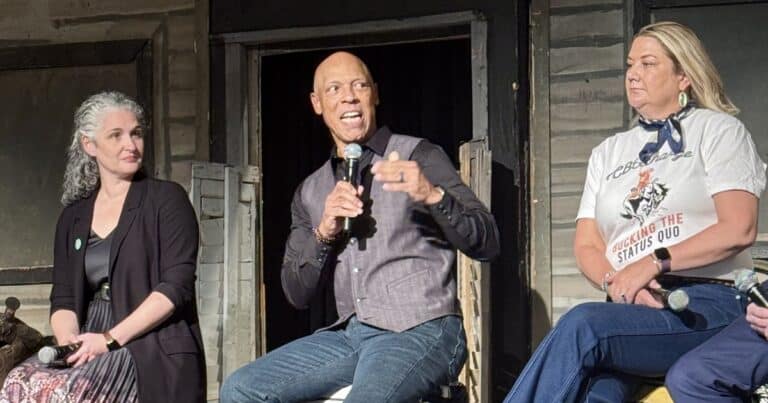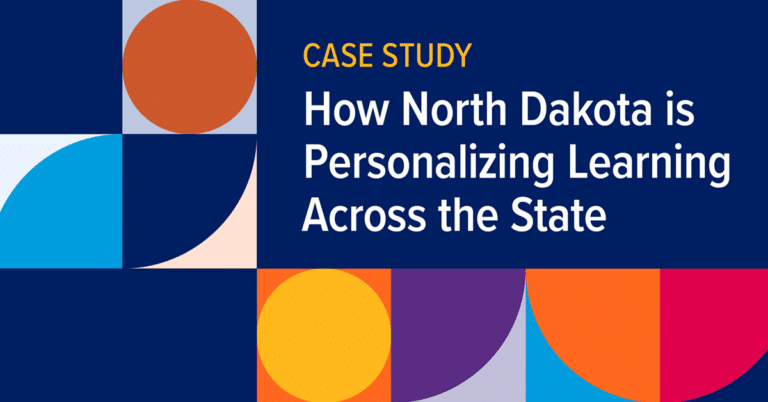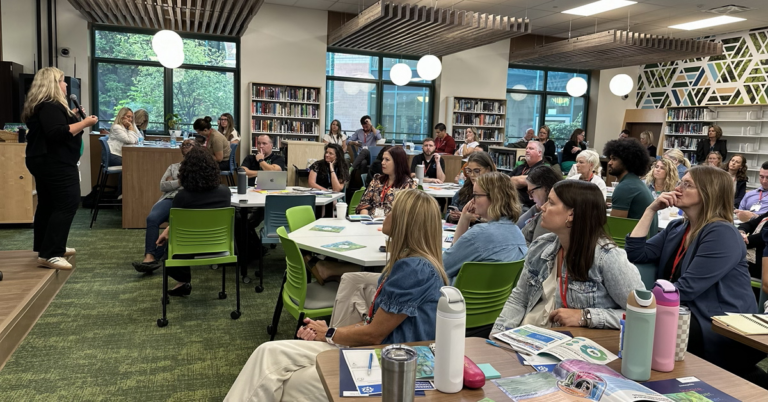When Marianne Beja thinks about what the students of South Carolina need to graduate ready for whatever futures they choose to pursue, she thinks about what she needs as an educator to make that happen.
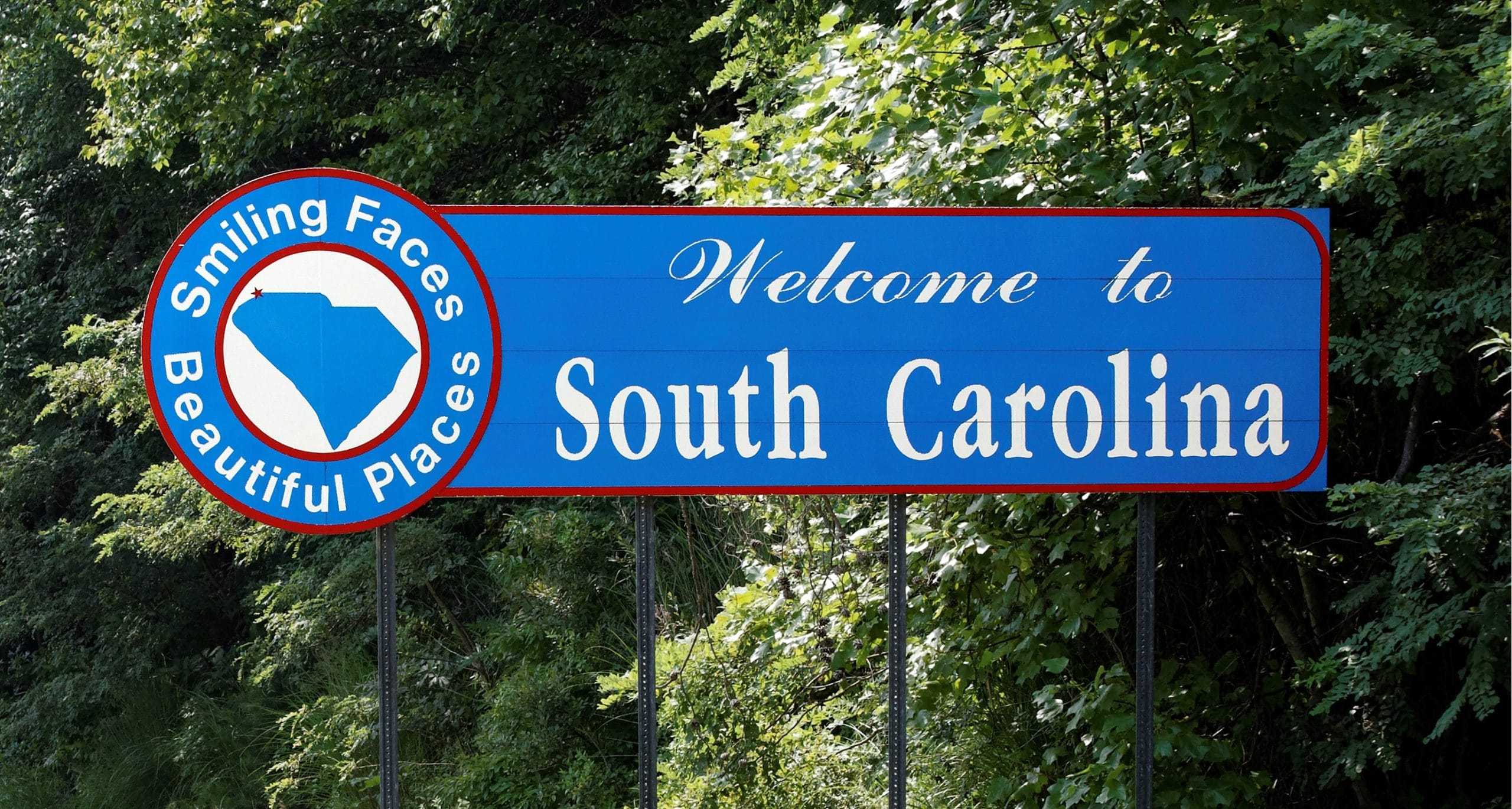
“This is a powerful moment for me because I’ve always searched for the answers and searched to be a better teacher,” Beja said at a recent convening of South Carolina educators. Beja is an instructional coach at Strom Thurmond High School in Johnston, South Carolina and before that, she taught for 34 years in the state. “It was always right there in front of me. It’s in front of our teachers. But they have to actually step back and allow the students to step up and take control of their learning.”
For Beja and others, it’s personalized learning that’s unlocking minds and opening doors.
“I want to build a community of lifelong learners and I think personalized learning is the way to do it,” said Beja, who stressed that the flexibility in pacing and choosing how they show what they know is what allows students to meaningfully connect with what they’re learning; to care. “I maintain that if you get a student in a situation and they personally connect with the content, they’re going to wow you each and every time.”
When the South Carolina Department of Education launched their Office of Personalized Learning, their aim was clear: to develop the capacity of district leaders and educators, like Beja, to create personalized, student-centered learning environments that prepare all students, not just some or most, for success. Lauren McCauley, lead associate for personalized learning with the South Carolina Department of Education, and Stephanie DiStasio, director of the office of personalized learning at the South Carolina Department of Education, have committed the resources and reach of the state department to ensuring that every district receives access to high-quality professional development that meets their unique needs and, by extension, the unique needs of learners in their communities.
Not only is the professional development free to participants, it’s also structured in a three-tiered system that supports where schools and districts are in their pursuit and interest with personalized learning. Exploring districts are participating in monthly webinars that introduce fundamental student-centered learning practices such as student agency and flexible learning environments, whereas districts who are interested in implementing personalized learning and refining their practice are attending two-day monthly convenings where they have the opportunity to learn more about how their day-to-day teaching and administrative practices can better support personalized learning.
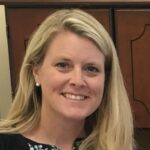
“We want to provide ‘just right’ opportunities to schools and districts… and give them the chance to learn and grow together.”
“We know that not every school and every district needs the same thing,” said DiStasio. “The three-tiered system came about because we want to provide ‘just right’ opportunities to schools and districts who are in the same place on their journey and give them the chance to learn and grow together.”
The state department is confident that the model will provide educators the tools they need to extend and scale best practices for personalized learning, and they’ve partnered with KnowledgeWorks to deliver professional development that supports their goals for all learners in South Carolina.
“Good works breeds interest,” said McCauley. “When folks come to you because they are interested, they will buy in and own it. When schools and teachers own the work and are supported by district leadership, that’s when you have sustainability.”
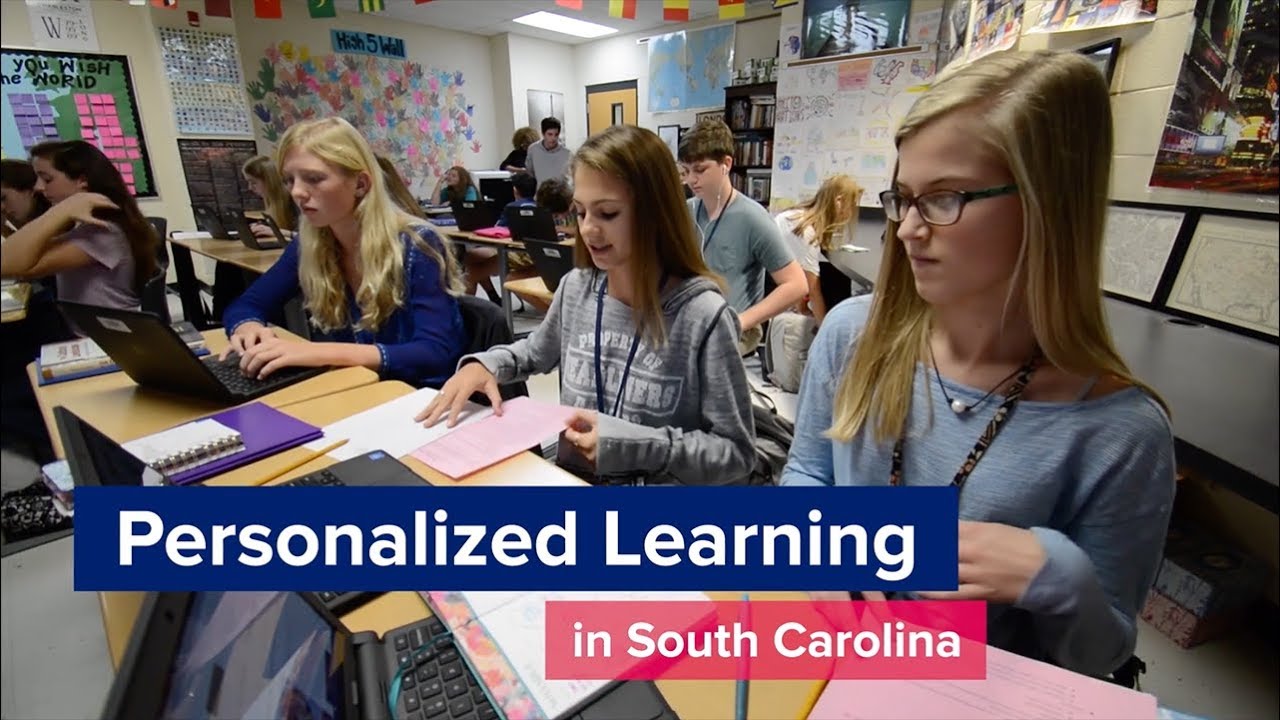
With personalized learning, no district is an island.
In addition to sharing student-centered best practices, the opportunity to connect like-minded districts fosters relationships that wouldn’t otherwise have been possible. “When I was in a district, we felt like an island,” said McCauley. “When I was hired on at the state department, I promised myself that no other district would feel that way.” Relationship-building is critical for educators in the classroom, and supporting opportunities at the state level can empower teachers to take big ideas and make big changes at home.
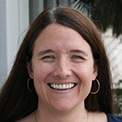
“When I was in a district, we felt like an island. When I was hired on at the state department, I promised myself that no other district would feel that way.”
“We don’t always know the good things that are happening around us,” said Sheila Quinn, former state deputy superintendent for innovation and effectiveness with the South Carolina Department of Education. “But our state is small enough that we can drive and communicate and see things to help us grow. The department is leveraging the power of districts who are already doing the work of personalized learning, rather than offering one-size-fits all professional development.”
At each professional development session, educators are encouraged to share a new student-centered practice they’ve tried, no matter how small, and reflect with each other and their teams on the personalized learning strategies introduced that best fit their students and communities.
“Networking has helped build my toolbox as a coach and established friendships that I wouldn’t have had prior to this experience,” said Heather Rollings, an instructional coach with Rock Hill School District. “I can email somebody, reach out for help, share ideas. Sometimes we feel like we’re alone in this journey, but we’re not alone.”
World class knowledge and world class skills – that’s the power of personalized learning.
The ownership that educators and district leaders are showing in pursuing personalized learning through the state-led professional development is the same initiative and excitement they hope to kindle in their students.
“With personalized learning, learning isn’t something that’s being done to them, but a process they’re involved in,” said Robert Maddox, superintendent of Edgefield County School District. Maddox is so passionate about moving forward with the work that he brought his entire district team to the convenings. “With standardized learning, all students are doing the same thing at the same pace. But we have students who are very diverse and different, and our communities need a diversity of talent.”
Student agency and ownership is a cornerstone of personalized learning – and it’s at the heart of the world class skills and the life and career characteristics that South Carolina hopes for its graduates.
“By having a student-centered approach and personalizing for all children so they can achieve the Profile of the South Carolina Graduate, we’re giving our kids opportunities to take advantage of the types of jobs that are coming to South Carolina,” said DiStasio. “We’re making sure our students are not only ready to get the job because they have the content knowledge, but be able to keep the job because they have the skills and characteristics to perform.”
Supporting students and educators at the highest level.
“I’ve had the opportunity to work at the state level and see just how important a state department can be to build capacity across districts,” said Quinn, who recently transitioned out of the State Department of Education and is now the superintendent of Clover School District. Quinn is excited to apply what she’s learned and see her new district benefit from the state’s push toward personalized learning.
McCauley hopes to see educators and leaders across the state begin to champion the work of personalized learning in their own districts, sharing what they’ve learned and building on the relationships forged during these convenings.
“The first day we gathered together, we had over 100 educators from across the state who were interested and passionate about personalized learning. I knew then that we were going to make a difference,” said McCauley. “They’ve proven in every session that we’ve been together that this work can move forward and change.”
Educators like Maddox share McCauley’s hopes.
“What’s unique about personalized learning is that it’s not a method within itself, but enduring principles that can be infused into any method of teaching,” said Maddox, whose teachers and coaches are showing increased excitement and willingness to try new things and take risks to support students in his district. He’s looking forward to what’s next, and stresses the invaluable opportunity of free, high-quality professional development made available to his small, rural district. “We would not be able to support our students at the highest level without the support of the state in an area that is crucial for every district – especially ours. This is perfect timing.”
Ready to move personalized learning from vision to reality? Schedule a call with a KnowledgeWorks teaching and learning expert for advice on planning next steps.
This was written by former Senior Manager of Communications Jillian Kuhlmann.


